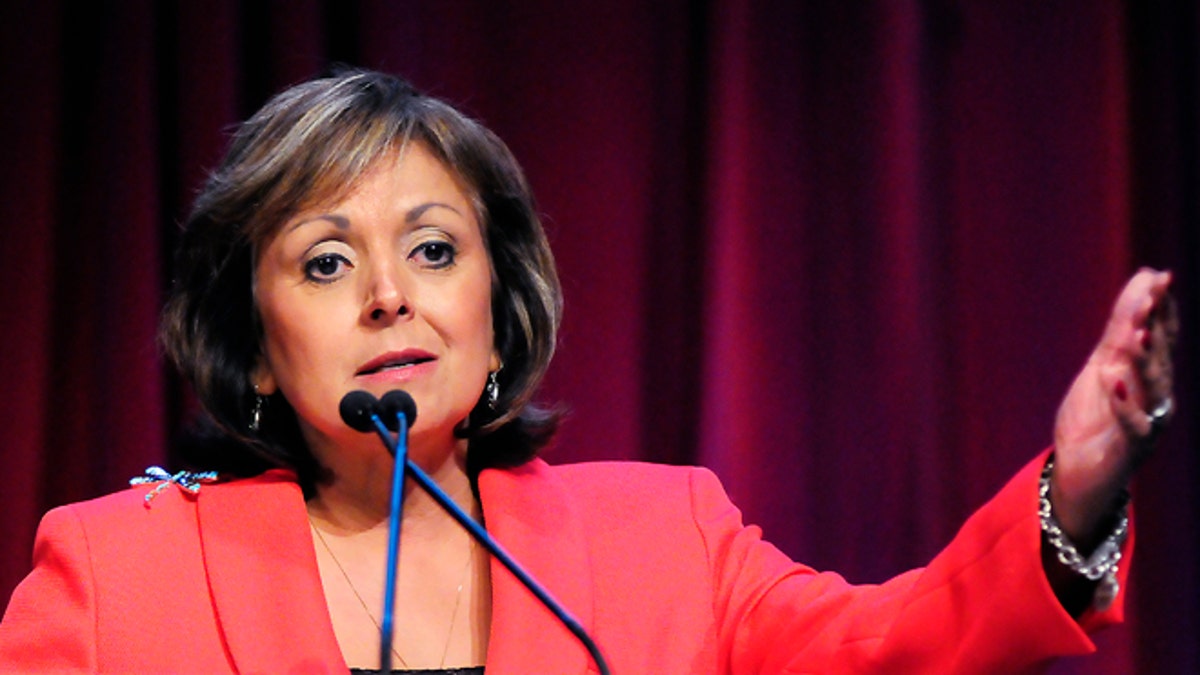
New Mexico Gov. Susana Martinez speaks on Thursday, Sept. 18, 2014, during the 2014 Domenici Public Policy Conference at the Las Cruces Convention Center in Las Cruces, N.M. (AP PHOTO/Las Cruces Sun-News, Robin Zielinski) ((AP PHOTO/Las Cruces Sun-News, Robin Zielinski))
ALBUQUERQUE, N.M. (AP) – New Mexico is "falling short" on graduating college students on time, and universities should consider a number of reforms to battle the state's high poverty rate, Gov. Susana Martinez said Wednesday.
Speaking at her Summit on Higher Education at the University of New Mexico, the Republican governor said universities need to increase counseling efforts and reduce undergraduate degree programs to 120 hours.
"We are falling far short in one of the key expectations New Mexicans have of us: to graduate (students) and graduate on time" Martinez said.
The lengthy time to graduate hurts the state's economy and prevents efforts to reduce poverty in one of the poorest states in the country, she said.
U.S. Census Bureau data released last year showed that 21.9 percent of New Mexico residents live in poverty. Only Mississippi had a higher number of residents living in poverty.
Nationally, the rate was 15.8 percent.
New Mexico's colleges should consider locking tuition rates for students who stay on a four-year schedule and work to keep students from wandering through various career options. Martinez said.
"Exploration is a good thing," Martinez said. "A lot of wandering is not."
The governor also said high schools should do a better job to prepare students, noting that many enter college needing remedial work.
The Western Interstate Commission for Higher Education says the state's six-year college graduation rate is 46 percent. Nationally, it's 69 percent.
Research shows remedial classes, nontransferable credits and extra credits were increasing the time it takes for New Mexico's college students to graduate, Complete College America senior vice president Bruce Vandal said. He suggested that New Mexico look to recent reforms at Georgia State University in Atlanta and examine how the school increased graduation rates, especially students of color.
The National Student Clearinghouse Research Center, a nonprofit focused on research and education policy, ranked New Mexico as having the largest enrollment drop nationwide last year.
According to the report, registration at colleges and universities plummeted 8.3 percent between spring 2014 and spring 2015. That is especially steep when compared with the 1.9 percent enrollment drop nationwide. In all, higher education registration in the state saw roughly 10,900 fewer students.




